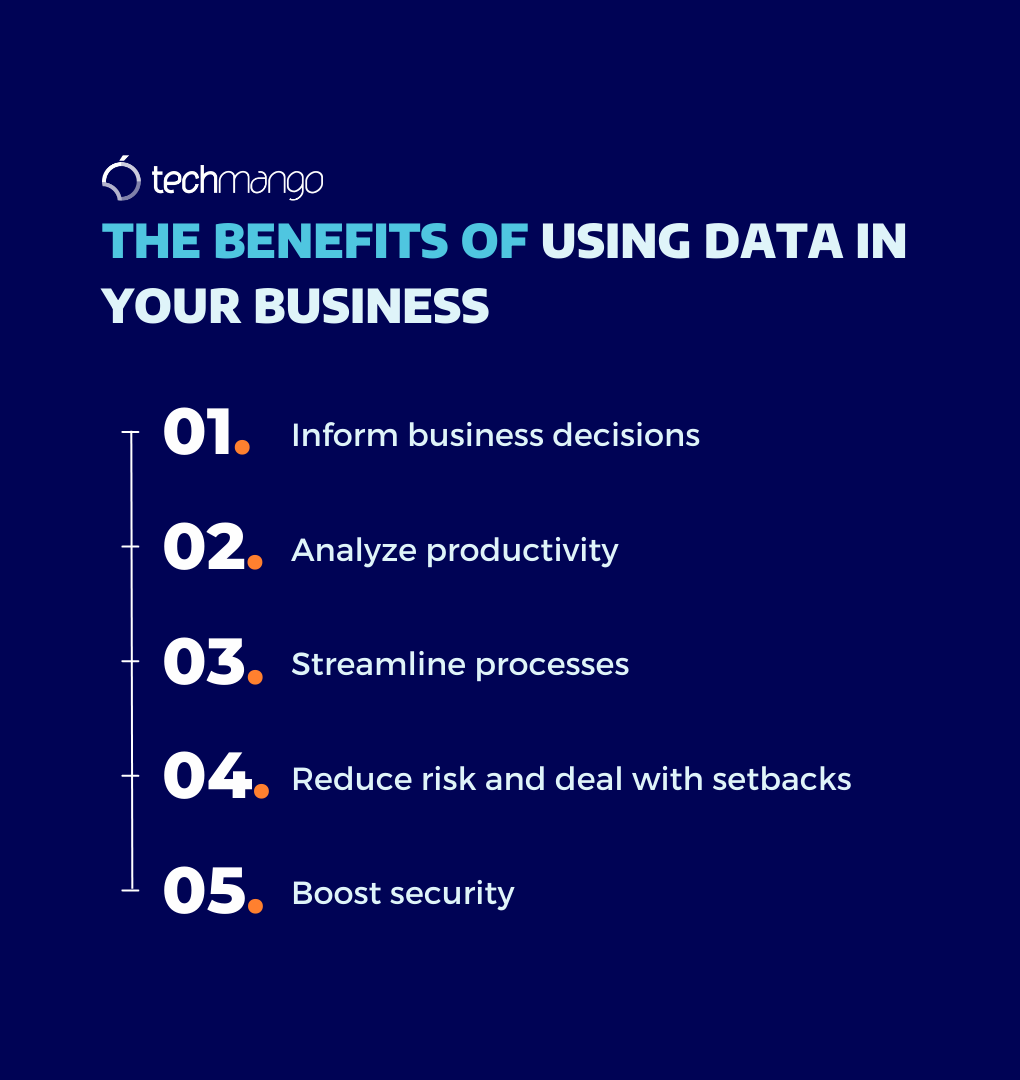It’s no secret that we are in the age of innovation, change, and decision-making.
Data-driven decision-making is taking businesses to another level. Today, companies are leveraging data to create insights and strategies to improve their competitive advantage and increase the value of their business based on real-time information across all industries.
As a result, companies are using these data technologies to transform themselves in a rapid and disruptive way.

Use of Data
Data can influence the success of your business in different ways depending on your objective. However, there are three common ways of using data, which are listed below:
- – Educate and improve decision-making
- – Modernize and streamline operations
- – Develop new revenue streams
Data is most useful for decision-making. Using the data we gather, your company can direct resources where they will be most beneficial, resulting in an efficient business strategy that is in line with your company’s objectives.
As many factors influence decision-making, every possibility should be measured, as their impact could drastically change your process and deviate you from your initial goal. In addition, data has the power to support your initiatives and help achieve positive business outcomes, like increased profits and profitability, leads contracting, etc.
As many factors influence decision-making, every possibility should be measured, as their impact could drastically change your process and deviate you from your initial goal. In addition, data has the power to support your initiatives and help achieve positive business outcomes, like increased profits and profitability, leads contracting, etc.
Here are the benefits of using data in your business:

Data provides many advantages and ways to increase your sales and differentiate yourself from the competition. Here, we will discuss some of the most common benefits:
1. Inform business decisions
Data helps businesses make better decisions and reduce financial losses. Predictive analytics can anticipate what will happen due to business changes and how it should respond to these adjustments in order to be successful.
2. Analyze productivity
As businesses grow in size, it becomes difficult to keep track of the progress of every department. Data collection helps evaluate productivity, profitability, and workloads to determine if a department needs funding, more staff, or should be reduced to direct resources to areas that would benefit the company more.
3. Streamline processes
Data analytics help organizations improve operational efficiency. For example, data collection and analysis of the supply chain can reveal where production delays or bottlenecks occur and help predict where future problems may arise.
4. Reduce risk and deal with setbacks
Data analytics assist companies in understanding risks and taking preventative measures. Businesses can also use data analytics to limit losses following a setback.
5. Boost security
By processing and visualizing relevant data, organizations can diagnose the causes of previous data breaches. In addition, organizations can configure these models to run indefinitely, with monitoring and alerting systems layered on top to detect and flag anomalies so that security professionals can take immediate action.

How data is disrupting business
Thanks to their big data strategy, the most successful companies, such as Facebook, Netflix, Apple, and Amazon, have been benchmarks in the digital economy for years.
In the aftermath of the pandemic, small and medium-sized companies have learned that, in the digital sphere, their presence must always be strong and they must have the technological infrastructure in place to continue (and increase) their growth and success.
However, to be successful with the use of data, the first thing to do is to make sense of the data collected. This means looking beyond each lead and making decisions based on data and discovering valuable insights that help you target your audience.
Data brings new opportunities that allow you to make more informed business decisions, streamline your processes, reduce risks, and more. With data, you’ll have more significant potential than your competition due to the differentiating strategy of combining valuable information with successful data management and delivery.
It’s clear that data is here to stay and has the potential to generate a competitive advantage for companies that use it properly. The question is: is your company hungry to grow?
Contact us to learn how Techmango can help your company start building a scalable future today.
